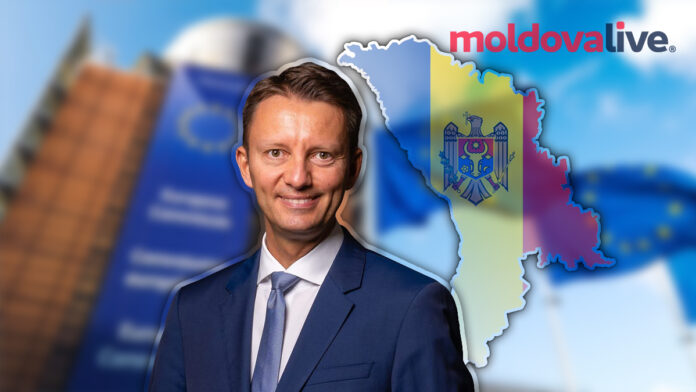Moldova will soon enter the technical phase of its European Union accession negotiations, after the evaluation of legislation in the main chapters. Romanian MEP Siegfried Muresan announced this on the show La 360 de grade on Radio Moldova, emphasizing that Chisinau’s European path has accelerated at an unprecedented pace over the last three years.
“The member states have evaluated legislation across various chapters, and technical discussions on the so-called clusters will begin very soon. In just three years, Moldova submitted its accession application, received candidate status, and secured unanimous approval from EU members to start negotiations,” Muresan stated.
The MEP highlighted that European integration has already delivered tangible benefits to Moldova. The country synchronized its electricity networks with the EU and Ukraine, joined the joint gas procurement platform, integrated into major infrastructure projects, and received €45 million in financial support for border security. Moldova also joined the Digital Europe program. It obtained €7.5 million for digital modernization, and starting January 1, 2026, EU roaming charges will be eliminated.
FOR THE MOST IMPORTANT NEWS, FOLLOW US ON TWITTER!
Another key milestone is the implementation of the €1.9 billion European Growth Plan, adopted earlier this year. “Moldova received €270 million in pre-financing in July and a first tranche of €19 million in recent weeks. Over the next three years, these funds will support the construction of hospitals, schools, roads, and energy interconnections with the European Union via Romania,” Muresan noted.
The MEP also commented on the European Parliament’s recent resolution to accelerate Moldova’s European integration, which passed with a 75% majority.
“All major steps in recent years – from granting candidate status to increasing pre-financing – came at the request of the European Parliament and received support from member states. Last week’s resolution sends a strong signal not only to the citizens of Moldova but also to all European institutions,” he explained.
Muresan emphasized that the resolution reaffirms support for speeding up negotiations, strengthening financial and technical assistance, and countering external interference.
“It sends a firm message to the Russian Federation and calls for more support from the member states and the European Commission,” Muresan concluded.


